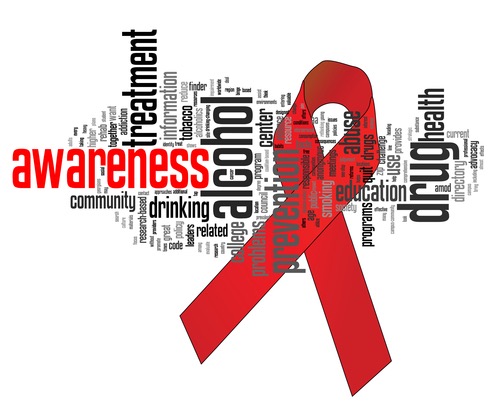
In the ever-evolving landscape of fitness, the pursuit of a healthier lifestyle has transcended the traditional realms of intense workouts. This blog delves into the transformative journey of the fitness industry, highlighting the growing importance of recovery and wellness services. Beyond the sweat-drenched workouts, a new era is emerging—one that embraces a holistic approach to well-being.
Rethinking Fitness: A Holistic Perspective
Gone are the days when fitness was synonymous with grueling workouts and sweat-soaked gym sessions. The evolving mindset of fitness enthusiasts is steering towards a holistic perspective that encompasses physical, mental, and emotional well-being. The realization that recovery is not just a post-workout necessity but a fundamental aspect of a healthy lifestyle is reshaping the fitness narrative.
The Role of Recovery in Performance Enhancement
While challenging workouts remain crucial for physical fitness, the focus is shifting towards what happens after the sweat session. Recovery is now recognized as a key element in performance enhancement. Athletes and fitness enthusiasts are exploring innovative recovery techniques to optimize their training results, reduce the risk of injuries, and promote long-term sustainability in their fitness journeys.
Personalized Recovery Plans
As the understanding of individual variability in recovery needs grows, the fitness industry is moving towards personalized recovery plans. Tailoring recovery strategies to individual preferences, body types, and fitness goals ensures a more targeted and effective approach. From customized recovery nutrition plans to specific recovery modalities, the emphasis is on providing personalized solutions for each individual.
Integration of Technology in Recovery
Technology is playing a significant role in revolutionizing the recovery aspect of fitness. Wearable devices, fitness apps, and smart recovery tools are empowering individuals to track their recovery progress, monitor vital indicators, and make informed decisions about their wellness routines. This integration of technology fosters a more data-driven and efficient approach to recovery.
Recovery Beyond Physical: Mental and Emotional Well-being
The evolution of fitness now acknowledges that well-being goes beyond physical health. Mental and emotional well-being are gaining prominence as essential components of a holistic fitness journey. Practices such as meditation, mindfulness, and stress management are becoming integral to recovery routines, promoting a balanced and resilient mindset.
Holistic Wellness Centers: A Hub for Comprehensive Well-being
The rise of holistic wellness centers signifies a shift from traditional gyms to comprehensive well-being hubs. These centers offer a spectrum of services, including recovery modalities, fitness classes, mental health resources, and nutritional guidance. They provide a one-stop destination for individuals seeking a well-rounded approach to their health and fitness.
Community and Support in Holistic Fitness
The evolving fitness landscape is fostering a sense of community and support. Whether through fitness classes, online forums, or social media groups, individuals are connecting to share their experiences, challenges, and triumphs in their holistic fitness journeys. This sense of community serves as a motivational force, encouraging individuals to prioritize their well-being in a supportive environment.
Paradigms and Transcendents
The evolution of fitness is a dynamic journey that transcends the limitations of traditional workout paradigms. Embracing recovery and wellness services as integral components of a holistic fitness approach paves the way for a more sustainable and fulfilling health journey. Beyond the sweat, fitness enthusiasts are discovering the transformative power of recovery, not just for physical performance but for fostering a balanced and thriving life. The future of fitness is one that goes beyond the gym floor, incorporating recovery and wellness as pillars of a comprehensive and holistic well-being strategy.



Welcome to the final chapter of our Stress Awareness Month journey, where we culminate our exploration with a focus on practical strategies to master the art of stress management. We’ve delved into the understanding of stress in the modern world, identified triggers, and built resilience. Now, armed with insights, let’s embark on a transformative quest towards a balanced and fulfilling life.
Crafting Your Stress Management Toolkit
- Holistic Well-being Practices: Stress management goes beyond fleeting remedies; it’s about cultivating a holistic approach to well-being. Explore practices like yoga, meditation, and deep breathing exercises to create a foundation for inner peace. These activities not only alleviate stress in the moment but contribute to long-term emotional resilience.
- Time Management and Prioritization: Effectively managing your time and priorities is a powerful stress management tool. Learn to distinguish between urgent and important tasks, delegate when necessary, and embrace the concept of “good enough.” By setting realistic expectations and boundaries, you create space for a more balanced and fulfilling life.
- Mindful Nutrition and Physical Activity: The connection between physical health and stress management is undeniable. Nourish your body with mindful nutrition, incorporating a balance of whole foods and hydration. Regular physical activity releases endorphins, reducing stress hormones and promoting a positive mood. Find joy in movement, whether it’s a brisk walk, a dance session, or a calming yoga practice.
- Digital Detox and Unplugging: In the digital age, a constant stream of information can contribute to stress. Practice periodic digital detoxes, set boundaries for screen time, and create tech-free zones in your home. Unplugging allows you to reconnect with the present moment, fostering a sense of calm and reducing the mental clutter that often accompanies technology.
- Cultivating Gratitude and Positivity: Shift your focus from what causes stress to what brings joy and gratitude. Keep a gratitude journal, acknowledging the positive aspects of your life. Surround yourself with positivity, whether through uplifting literature, inspiring podcasts, or meaningful conversations. Cultivating a positive mindset enhances resilience and transforms your approach to stress.
Creating a Balanced Life
- Setting Realistic Goals: Embrace the power of realistic goal-setting. Break down larger objectives into manageable steps, celebrating small victories along the way. This approach fosters a sense of accomplishment, reduces overwhelm, and allows you to maintain equilibrium in your pursuits.
- Embracing Self-Care Rituals: Prioritize self-care as a non-negotiable aspect of your routine. Whether it’s a quiet moment with a book, a soothing bath, or a creative outlet, dedicate time to activities that replenish your energy and nourish your soul. Recognize that self-care is not a luxury but a fundamental component of a balanced life.
- Continuous Learning and Adaptability: The ability to adapt and learn from experiences is fundamental to stress management. Cultivate a growth mindset, viewing challenges as opportunities for learning and personal development. This adaptability empowers you to navigate the ever-changing landscape of life with resilience and grace.
As we conclude our exploration of stress during this awareness month, remember that the journey towards a balanced life is ongoing. By integrating these practical strategies into your daily routine, you equip yourself with a personalized toolkit for mastering the art of stress management. Embrace the process, celebrate progress, and savor the moments of tranquility on your path to a more balanced and fulfilling life.
Thank you for joining me on this transformative journey. May the insights gained during Stress Awareness Month serve as a compass for navigating life’s challenges with resilience, mindfulness, and a commitment to well-being.
